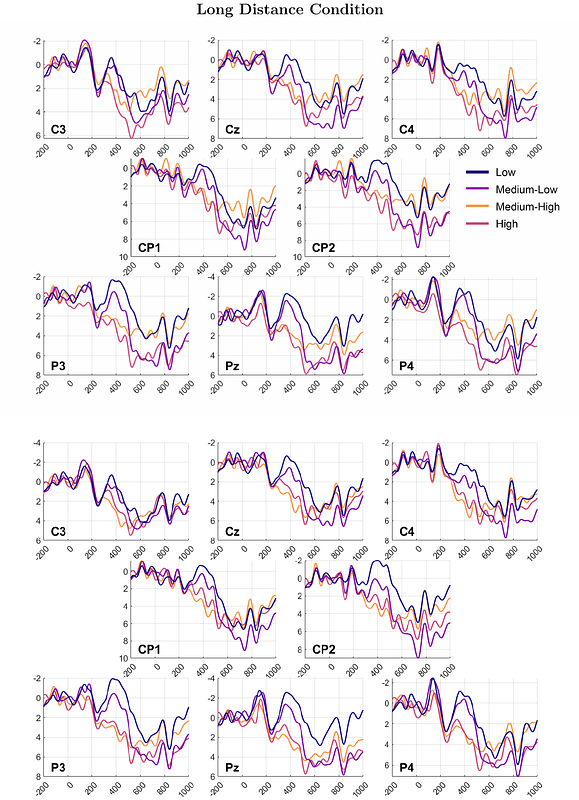When Meaning Matters Most: Rethinking Cloze Probability in N400 Research

When Meaning Matters Most: Rethinking Cloze Probability in N400 Research
Arkhipova, Y.; Lopopolo, A.; Vasishth, S.; Rabovsky, M.
AbstractThe N400 component of ERPs is modulated by how predictable a word is, but predictability is usually quantified with lexical cloze---the probability that readers supply that exact word in offline sentence completion tasks. This form-based metric is at odds with decades of evidence that the N400 is primarily sensitive to meaning. Here, we asked whether a measure of semantic feature predictability can better account for N400 amplitude modulation. We reanalysed two independent EEG datasets (N = 26 and N = 334), computing lexical and semantic cloze for each critical word. Across the two datasets, semantic cloze explained significantly more N400 variance than lexical cloze. Using the same materials, we then compared semantic and lexical cloze with probabilities from four large language models (GPT-2, GPT-2.7b, RoBERTa, ALBERT). None of the LLM-derived predictors outperformed semantic cloze. Our findings support the view that the N400 primarily reflects semantic---not exact-word---processing. Methodologically, we argue that replacing lexical cloze with semantic cloze can substantially increase the explanatory power of N400 studies, and caution against substituting human norms with raw LLM probabilities.